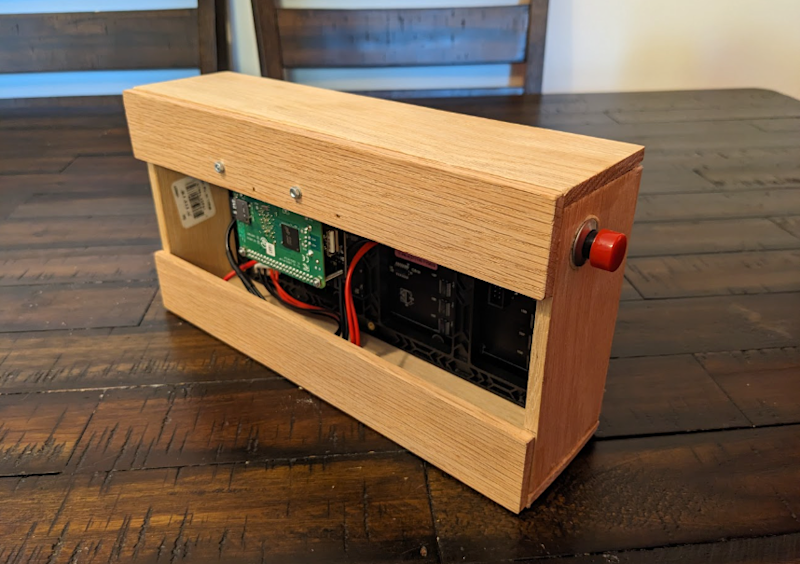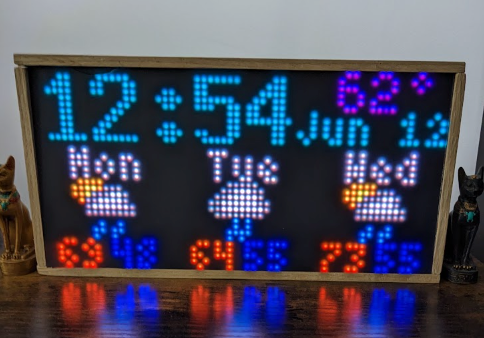“I originally saw someone post a flight tracker using an Arduino but it only displayed overhead flights – when there were no planes, it was a blank screen,” Adam explains. “Myniceaccount posted his own project in the comments on Reddit and it included a clock and a flight tracker using Raspberry Pi, so I followed the instructions and built one.

“Afterwards, I kept looking at the empty space and thinking it could be utilised so much more, especially since it was already pulling data from a weather website and flight tracking website. With some help with the coding, more functions were slowly added.” The result is a constantly useful device.
Raspberry Pi in the sky
Rather than use a screen, the project incorporates a 64×32 RGB matrix panel. “I liked the way it looks,” Adam says. “It’s very low key and old school while being easier to read (I think). If you had a screen, you could add more information, but it would become too cluttered. This one is simple and to the point.”
An Adafruit Bonnet controls the panel, which is covered with black tinted acrylic and housed within a case. Once the casing was cut and glued together, Adam set up his Raspberry Pi 3A+ computer and began working on the software.

“Originally the display showed the time, date, and current temperature on the main screen and the flight route, call sign, and aircraft on the other,” Adam continues. “I had the idea to add a weather forecast on the main screen and to add the airline logo, distance, and direction on the flight screen. I just needed help from someone who knew Python to put it all together.
“I found someone, but he didn’t have the setup to test it, so we spent weeks going back and forth – him sending code and me running it, then sending error reports or feedback on what was working and wasn’t working.” After making the time and date smaller, Adam dabbled with a four-day forecast only to realise three-digit temperatures messed up the screen layout. He chopped a day away.
Is it a bird?
Flight tracking remains a very important part of the project. Adam is a keen plane spotter and a device to aid his hobby was his primary motivation. To ensure accuracy, flight information is sourced from FlightRadarAPI.
“When a plane enters a predetermined ‘box’ made from two lat/long points in the config file along with a minimum altitude, it pulls the flight info and lat/long of the plane and compares it to the lat/long of your location,” Adam explains. “As the plane flies through the box, it updates its distance and direction until it’s out of the box, where it switches back to the clock and weather.”
The device now takes pride of place beneath Adam’s TV, allowing him to quickly view its information. “With this device I can hear a plane outside and I can discover what it is,” Adam says. “This project was also my first involving an actual display and casing so it was definitely a new experience for me.”








